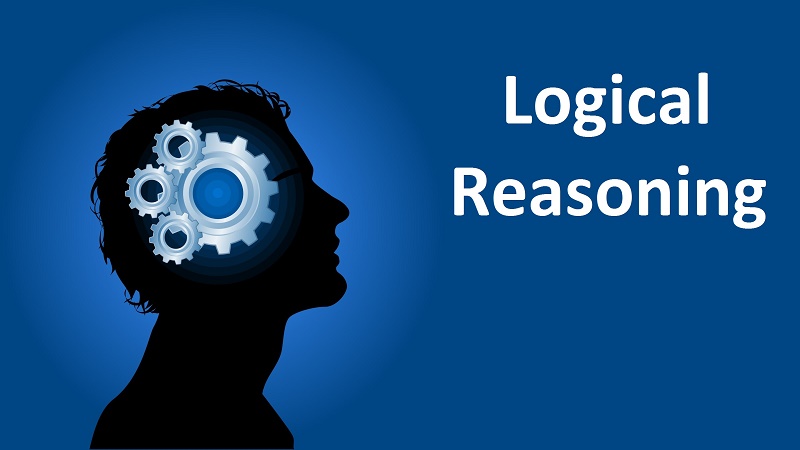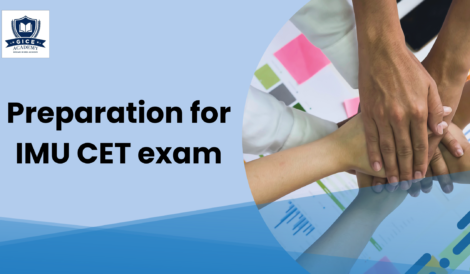Table of Contents
Here are some 7 Simple Strategies to Excel in MBA Entrance Exams
MBA entrance exams such as the CAT, XAT, and GMAT are gateways to prestigious business schools in India and globally. These exams evaluate a wide range of skills, including quantitative ability, verbal reasoning, and analytical thinking. As 2024 approaches, aspirants must gear up with a strategic approach to conquer these challenging assessments.
Success in MBA entrance exams demands more than just academic knowledge; it requires careful planning, consistent effort, and strategic execution. Each exam has its unique format and areas of emphasis, making it essential for aspirants to not only understand the content but also master the test-taking strategies that will give them an edge over the competition.
In this blog, we will unfold seven simple yet effective strategies designed to enhance your preparation and boost your performance in MBA entrance exams for 2024. From foundational skills in quant and verbal to mastering data interpretation and developing robust study habits, each strategy will provide targeted advice and practical tips to help you excel.
Whether you are a first-time test-taker or looking to improve your scores from previous attempts, these strategies are tailored to guide you through your preparation journey, making sure every aspect of the exam is covered. By the end of this guide, you will be equipped with the knowledge and tools necessary to tackle any MBA entrance exam with confidence.
Understanding the Exam Structure
A thorough understanding of the exam structure is crucial for MBA entrance exam preparation. Different exams have their own unique formats and areas of focus, which can significantly influence your study strategy and performance.
Common MBA Entrance Exams and Their Structures
- Common Admission Test (CAT):
- Sections: Quantitative Ability (QA), Verbal Ability and Reading Comprehension (VARC), and Data Interpretation & Logical Reasoning (DILR).
- Format: Computer-based test with both multiple-choice questions (MCQs) and non-MCQs that require typed answers.
- Duration: 3 hours, with 60 minutes allocated to each section.
- Xavier Aptitude Test (XAT):
- Sections: Verbal and Logical Ability, Decision-Making, Quantitative Ability and Data Interpretation, and General Knowledge.
- Format: Computer-based test primarily consisting of MCQs.
- Duration: 3 hours, with an additional 15 minutes for the General Knowledge section.
- Graduate Management Admission Test (GMAT):
- Sections: Analytical Writing Assessment, Integrated Reasoning, Quantitative, and Verbal.
- Format: Computer-adaptive test that adjusts the difficulty of questions based on the test taker’s performance.
- Duration: Approximately 3.5 hours including breaks.
Key Areas of Focus for Different Exams
- CAT: Focuses heavily on quantitative skills and logical reasoning, with a significant emphasis on data interpretation.
- XAT: Unique for its Decision Making section, which requires good judgment and logical reasoning, in addition to the standard quantitative and verbal sections.
- GMAT: Distinguished by its Analytical Writing Assessment and Integrated Reasoning sections, testing more on analytical skills and the ability to evaluate information presented in multiple formats.
Strategies for Exam Structure Mastery
- Familiarization:
- Spend time understanding the instructions and format of each exam. Familiarity can significantly reduce anxiety and help manage time more effectively during the test.
- Regularly review the official websites and latest updates for any changes in the exam patterns or rules.
- Section-Specific Strategy:
- Develop a section-wise strategy that allows you to allocate study time based on the weightage and difficulty level of each section.
- For instance, if you are weaker in Quantitative Ability, allocate more preparation time to this area, especially for exams like the CAT and GMAT.
- Practice with Purpose:
- Engage in targeted practice using mock tests that mimic the actual exam format. This will help you get accustomed to the pacing and the type of questions asked.
- Analyze performance in these practice sessions to identify strong and weak areas, adjusting your study plan accordingly.
Understanding the structure and requirements of each MBA entrance exam allows you to tailor your preparation effectively, ensuring that you are not only ready to answer the questions but also to manage your time and stress levels during the exam.
Building a Solid Foundation in Quantitative Skills
Quantitative skills are a cornerstone of MBA entrance exams, demanding not only a firm grasp of basic mathematical concepts but also the ability to apply these concepts swiftly and accurately under exam conditions. Strengthening your quantitative foundation can significantly enhance your performance across several major MBA entrance exams.
Core Areas to Focus On
- Arithmetic: Topics like percentages, profit and loss, ratios, and averages form the basis of many quantitative problems.
- Algebra: Equations, inequalities, and functions are commonly tested and require clear conceptual understanding.
- Geometry: Questions on circles, triangles, and other geometric figures are frequent, along with problems involving mensuration.
- Data Interpretation: This involves interpreting data from graphs, charts, and tables — a critical skill for real-time business analysis.
Strategies to Enhance Quantitative Abilities
- Basic Concept Mastery:
- Begin with the basics. Ensure you understand foundational concepts before moving to more complex problems.
- Use textbooks and online resources tailored for MBA preparation to revisit and reinforce these concepts.
- Structured Practice:
- Regular practice is crucial. Dedicate specific times in your study schedule for quantitative exercises.
- Start with simpler problems to build confidence and gradually increase the difficulty level to challenge yourself.
- Problem-Solving Techniques:
- Learn various mathematical shortcuts and tricks. This can significantly reduce calculation time during the exam.
- Focus on approximation techniques and mental math skills, which are invaluable for data interpretation questions.
- Utilizing Mock Tests:
- Include quantitative sections in your regular mock tests. Analyze your performance to identify weaknesses and track improvement over time.
- Practice with a timer to improve your speed and accuracy under exam conditions.
- Study Groups and Tutoring:
- Join study groups or engage a tutor if you find certain quantitative areas particularly challenging. Collaborative learning can provide new insights and problem-solving approaches.
- Tutors can provide personalized guidance and help clarify doubts, offering tailored strategies to overcome specific obstacles.
Resources for Quantitative Preparation
- Books: Consider texts like ‘Quantitative Aptitude for Competitive Examinations’ by R.S. Aggarwal, and ‘The Complete CAT Digest’ by Arun Sharma.
- Online Courses: Platforms like Khan Academy and Coursera offer courses in basic and advanced mathematics that are suitable for MBA prep.
- Apps: Apps such as Magoosh GMAT and Quantitative Aptitude provide practice questions and tests that can be done on-the-go.
Strengthening your quantitative skills not only boosts your exam performance but also prepares you for the analytical challenges of an MBA program. By following these strategies, you can build a strong quantitative foundation, crucial for excelling in MBA entrance exams.
Mastering Verbal and Reading Comprehension
Verbal ability and reading comprehension are critical components of MBA entrance exams, testing your command of the English language and your ability to understand and analyze written material. Excelling in this area requires not only a good vocabulary but also strong analytical skills and the ability to interpret complex texts under time constraints.
Key Focus Areas
- Reading Comprehension (RC): Typically involves passages followed by questions that test understanding, interpretation, and inference.
- Verbal Ability: Includes grammar, sentence correction, sentence completion, and vocabulary-based questions.
Strategies to Enhance Verbal Skills
- Extensive Reading:
- Cultivate a habit of reading widely, including newspapers, journals, novels, and non-fiction. This increases exposure to diverse writing styles and vocabularies.
- Try to read materials similar to those found in MBA entrance exams, such as editorial articles from reputable publications.
- Vocabulary Building:
- Regularly learn new words; use flashcards or apps like Anki or Quizlet to reinforce new vocabulary.
- Understand the usage of words in different contexts rather than just their meanings.
- Practicing Reading Comprehension:
- Regularly practice with RC passages. Start with shorter passages, gradually moving to longer and more complex ones.
- Focus on speed as well as comprehension. Set time limits to improve your ability to read and understand quickly.
- Enhancing Analytical Skills:
- When practicing RC, make it a habit to summarize passages and predict questions that could be asked.
- Engage in critical analysis by discussing the content, arguments, and perspectives in the passages with peers or mentors.
- Grammar and Usage:
- Brush up on basic grammar rules. Use resources like “Wren & Martin High School English Grammar and Composition” to solidify your grammar foundation.
- Practice applying grammar rules through sentence correction exercises available in most MBA preparation books.
- Mock Tests and Practice Questions:
- Use previous year papers and mock tests to get a feel for the types of verbal questions asked.
- Analyze your performance in these tests to identify areas of weakness and focus your studies accordingly.
Resources for Verbal Preparation
- Books: Consider resources such as “How to Prepare for the Verbal Ability and Reading Comprehension for the CAT” by Arun Sharma and Meenakshi Upadhyay, or “The Official Guide for GMAT Verbal Review.”
- Online Platforms: Engage with platforms that offer interactive exercises and tutorials like Magoosh or e-GMAT, which are specifically designed for MBA entrance exam preparation.
Mastering verbal and reading comprehension skills will not only aid in clearing MBA entrance exams but also enhance your overall communication skills, a vital component of business management. By dedicating time to develop these skills, you can significantly improve your chances of success in these competitive exams.
Enhancing Data Interpretation and Logical Reasoning
Data Interpretation (DI) and Logical Reasoning (LR) are integral parts of MBA entrance exams, designed to test a candidate’s ability to analyze data and solve problems logically. These sections can often be challenging due to their complex scenarios and the high level of concentration they require.
Key Focus Areas
- Data Interpretation: Involves extracting and interpreting data from tables, charts, and graphs to solve problems.
- Logical Reasoning: Includes puzzles, seating arrangements, syllogisms, and other forms of logical queries that assess a candidate’s reasoning abilities.
Strategies to Improve DI and LR Skills
- Understand the Basics:
- Familiarize yourself with different types of graphs and charts—line graphs, bar charts, pie charts, and tables.
- Study the fundamentals of logical reasoning, such as identifying argument structures and understanding logical links.
- Practice with Variety:
- Expose yourself to a wide range of practice questions in both DI and LR. This diversity will prepare you for the unexpected and reduce the likelihood of encountering unfamiliar question types during the exam.
- Utilize practice books and online resources that offer extensive sets of practice problems.
- Time Management:
- Develop strategies to quickly interpret data and identify the most straightforward way to solve problems.
- Practice timed exercises to improve your speed and accuracy, crucial for performing well in these sections.
- Logical Deduction Techniques:
- Learn and practice various logical deduction techniques and shortcuts that can help speed up your reasoning process.
- Engage in mental exercises like Sudoku, puzzles, and brain teasers to sharpen your logical thinking skills.
- Mock Tests:
- Regularly take full-length mock tests that include DI and LR sections. This not only helps with practice but also builds stamina and familiarity with the exam format.
- Analyze your performance in these tests to identify weaknesses and track your progress.
- Group Study and Discussions:
- Sometimes, discussing complex problems with peers can provide new insights and methods of solving problems.
- Group study sessions can be particularly beneficial for LR problems, as different perspectives can make understanding complex scenarios easier.
Resources for DI and LR Preparation
- Books: Titles like “Data Interpretation & Data Sufficiency” by Ananta Ashisha or “Logical Reasoning and Data Interpretation for the CAT” by Nishit K. Sinha are highly recommended.
- Online Courses and Videos: Platforms like Khan Academy and YouTube channels dedicated to competitive exam preparation can be invaluable for understanding complex DI and LR concepts.
Enhancing your skills in Data Interpretation and Logical Reasoning will significantly contribute to your overall performance in MBA entrance exams. These skills not only help in acing the exams but also are essential in the business world for making informed decisions based on data.
Developing Consistent Study Habits
Consistent study habits are the backbone of successful preparation for MBA entrance exams. Establishing a disciplined approach to studying can enhance retention and understanding, ultimately leading to better performance on exam day.
Importance of Consistency
Consistency in preparation helps to:
- Build and retain a strong knowledge base.
- Reduce stress by avoiding last-minute cramming.
- Foster a deeper understanding of complex topics.
- Improve time management skills through regular practice.
Creating and Following a Personalized Study Plan
- Set Clear Goals:
- Define specific, measurable, achievable, relevant, and time-bound (SMART) goals for your exam preparation.
- Break down your goals into monthly, weekly, and daily targets to keep your studies on track.
- Schedule Regular Study Times:
- Dedicate specific times of the day for studying, creating a routine that fits your personal and professional commitments.
- Treat these study times as non-negotiable appointments to ensure consistency.
- Diverse Learning Techniques:
- Incorporate various learning methods such as reading, writing summaries, creating mind maps, and teaching concepts aloud to reinforce learning.
- Adapt your study techniques based on the subject matter and your personal learning style.
- Regular Breaks and Rewards:
- Include short breaks during study sessions to improve concentration and avoid burnout.
- Reward yourself after achieving study milestones to stay motivated.
- Continuous Revision:
- Regularly review previously studied material to reinforce knowledge and ensure it remains fresh in your memory.
- Use revision techniques like flashcards, quizzes, and practice tests to evaluate your understanding.
- Stay Organized:
- Keep your study space organized and free of distractions.
- Use planners or digital apps to track your progress and upcoming study sessions.
- Stay Connected with Fellow Aspirants:
- Engage with a community of fellow MBA aspirants to share insights, resources, and support.
- Group studies can be effective, especially for discussing complex topics and solving challenging problems.
Leveraging Technology for Efficient Study
- Utilize educational apps and online platforms that offer interactive learning tools and track your progress.
- Take advantage of video tutorials, webinars, and online courses that can provide alternative explanations and methodologies for complex topics.
Developing and maintaining consistent study habits will not only prepare you for MBA entrance exams but also instill disciplines that are beneficial in your professional life. A methodical approach to studying ensures that no topic is left uncovered and that you approach the exam with confidence.
Utilizing Mock Tests and Previous Papers
Mock tests and previous examination papers are invaluable tools in the MBA entrance exam preparation arsenal. They play a critical role in honing your exam strategies and pinpointing areas where you need improvement.
Benefits of Regular Practice with Mock Tests and Previous Papers
- Real Exam Simulation:
- Mock tests provide a simulated test environment that helps you adapt to the pressure and format of the actual exam.
- Practicing under timed conditions helps in developing time management skills that are crucial during the exam.
- Performance Assessment:
- Regularly taking mock tests allows you to measure your performance and track improvements over time.
- Analyzing your scores and identifying consistent weaknesses or mistakes can direct your study efforts more effectively.
- Familiarity with Question Types and Patterns:
- Previous papers give you insight into the types of questions that frequently appear in exams, helping you to understand what examiners expect.
- Familiarity with question formats reduces surprises on exam day, allowing for a more confident approach.
Strategies for Effective Use of Mock Tests and Previous Papers
- Integrate into Study Plan:
- Schedule regular mock tests as part of your study plan. Begin with taking a mock test every two weeks and gradually increase the frequency as the exam approaches.
- Integrate lessons learned from each mock test back into your study sessions.
- Timed Practice Sessions:
- Always time your practice sessions to get used to the pressure of working within strict time limits.
- Try to simulate the exact conditions of the exam environment, including following the same breaks and starting at the same time as the actual test.
- Detailed Analysis Post-Test:
- After each mock test, spend adequate time analyzing your results. Identify questions that were missed, took too long, or where incorrect assumptions were made.
- Review every error and understand why you made them to avoid repeating the same mistakes.
- Focus on Weak Areas:
- Use the insights gained from mock tests to focus your study efforts on weak areas.
- If data interpretation is consistently challenging, for example, dedicate more time and resources to improving in that area.
- Peer Review and Discussion:
- Discussing mock test answers with peers or mentors can provide new perspectives and insights.
- Peer discussions can also help in clarifying doubts and deepening understanding of complex topics.
Resources for Mock Tests and Previous Papers
- Official Websites and Books: Always start with the official practice tests and past papers provided by the examination bodies.
- Test Prep Companies: Utilize resources from reputable test prep companies that offer updated and challenging mock tests designed specifically for MBA entrance exams.
Regular and systematic use of mock tests and previous papers is essential not just for measuring your preparation but also for making your study time more effective. This practice builds confidence, sharpens your test-taking strategies, and ensures you are well-prepared to face the actual exam.
Stress Management and Mental Preparation
Managing stress and maintaining mental wellness are crucial for achieving peak performance during MBA entrance exams. The intense preparation period and the high stakes of the exam can lead to significant stress, which if not managed well, can impair your ability to perform optimally.
Techniques for Effective Stress Management
- Regular Physical Activity:
- Engage in regular exercise such as yoga, running, or even brisk walking. Physical activity is proven to reduce stress levels and improve mental clarity.
- Schedule short workout sessions during your study breaks to keep your energy levels up and mind refreshed.
- Balanced Diet and Sleep:
- Maintain a healthy diet that fuels your brain and body. Avoid heavy, sugary, and excessively caffeinated foods before studying and exams.
- Ensure you get adequate sleep, as sleep deprivation can significantly affect cognitive function and stress levels.
- Mindfulness and Meditation:
- Practice mindfulness or meditation to improve concentration and calmness. Even short sessions can help reduce anxiety and boost focus.
- Apps like Headspace or Calm can guide you through meditation practices suited for stress management.
- Structured Study Plan:
- A well-organized study plan can reduce anxiety by making your preparation seem more manageable and under control.
- Avoid cramming and instead, study in consistent, manageable segments as recommended in earlier sections.
- Social Support:
- Stay connected with friends and family who understand and support your goals. Social support is vital for mental well-being.
- Join study groups or online forums where you can share concerns and solutions with peers who are undergoing similar experiences.
- Regular Breaks and Leisure Activities:
- Take regular breaks to prevent burnout. Short pauses during long study sessions can help maintain high levels of efficiency.
- Engage in leisure activities that you enjoy and that help you relax. Whether it’s reading, painting, or watching movies, make sure to allocate time for relaxation.
Mental Preparation for the Exam Day
- Visualization Techniques:
- Use visualization techniques to imagine success. Visualize yourself performing well on the exam, which can help build confidence and reduce anxiety.
- Practice going through the motions of exam day, from waking up early to completing the exam confidently.
- Positive Affirmations:
- Use positive affirmations to reinforce your confidence. Remind yourself of your preparation and your ability to handle challenges.
- Affirmations like “I am prepared and calm” or “I can handle exam questions effectively” can be very reassuring.
- Exam Day Strategy:
- Have a clear plan for the exam day, including arrival at the exam center early, having all necessary materials, and knowing the exam layout.
- During the exam, take deep breaths and pace yourself. If you feel overwhelmed, pause briefly to refocus.
Managing stress and staying mentally prepared are as crucial as mastering exam content. By implementing these strategies, you can ensure that you are mentally and physically prepared to tackle your MBA entrance exams with confidence.
What are the key exams to prepare for when aiming for an MBA in India?
The most prominent exams are the CAT (Common Admission Test), XAT (Xavier Aptitude Test), GMAT (Graduate Management Admission Test), and CMAT (Common Management Admission Test).
How early should I start preparing for MBA entrance exams?
What are the key exams to prepare for when aiming for an MBA in India?
The most prominent exams are the CAT (Common Admission Test), XAT (Xavier Aptitude Test), GMAT (Graduate Management Admission Test), and CMAT (Common Management Admission Test).
Can I prepare for the MBA entrance exams while working full-time?
Yes, many candidates successfully balance work and exam preparation. It requires meticulous time management and dedication, possibly including a structured study schedule during early mornings, evenings, or weekends.
What are the best study materials for MBA entrance exams?
Apart from the specific books mentioned in earlier sections, online resources, coaching classes, and official practice materials from the exam authorities are highly recommended.
What are the key exams to prepare for when aiming for an MBA in India?
Extremely important. Mock tests help you get accustomed to the exam format, time constraints, and types of questions. They are crucial for refining your strategy and timing.
What should I focus on a day before the exam?
Avoid heavy studying or cramming. Review key formulas and concepts, ensure you have all necessary documents and materials ready, and try to relax.
How can I manage stress during the exam?
Practice deep breathing exercises, stay hydrated, and keep a positive mindset. During the exam, read each question carefully and manage your time efficiently.
What are the key exams to prepare for when aiming for an MBA in India?
Prioritize easier questions to secure quick marks, manage your time wisely, and avoid lingering too long on difficult questions. Always keep track of time and adjust your pace accordingly
Is coaching necessary for MBA entrance exam preparation?
While not necessary for everyone, coaching can provide structured learning and expert guidance that might be beneficial for some students, especially those needing direction or struggling with certain sections.
How do I decide which MBA programs to apply to after my exams?
Consider factors such as program rankings, specialization options, campus facilities, placement records, and tuition fees. Also, think about geographical preferences and the potential return on investment from the program.







